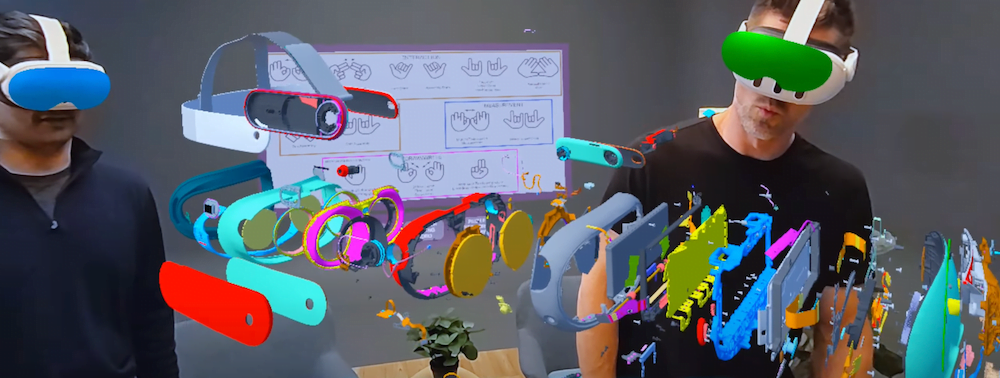[ad_1]
In 2024, Meta has pinpointed three pivotal areas for technological transformation and growth within the Metaverse and beyond: the Metaverse‘s ongoing evolution, the emergence of on-device Large Language Models (LLMs), and the new wave of mobile messaging. These sectors represent the forefront of Meta’s vision for a digitally integrated future.
Meta has reported advancements within the Metaverse, particularly emphasizing its growing applications in the fitness, wellness, and education sectors. “While the hype cycle has moved on from the metaverse to AI, we remain committed to both,” the company stated in its blog post.
Furthermore, Meta’s launch of “Caddy” has made strides in enhancing computer-aided design (CAD). It allows for collaborative 3D modelling across distances and makes the technology accessible to a wider audience. Caddy provides the capability to view 3D models in cross-section, create straightforward drawings, and measure both digital and physical objects.
The precision and detail visible in the 3D models allow users to zoom in on small components such as sensors and batteries. This feature offers a detailed insight into the assembly and structure of various items.

The Rise of On-Device LLMs
The shift of AI processes from centralized cloud computing to localized edge devices is redefining user experiences, ensuring more personalized interactions and diminished latency. Integrating on-device LLMs heralds a new era where mobile devices evolve beyond communication tools into intelligent assistants.
According to Meta, “We’ll arrive at a hybrid model where some tasks are completed by LLMs running on the cloud while others take place on our phones in the palm of our hands, or even on a pair of stylish smart glasses”.
Meta’s incorporation of AI into Ray-Ban smart glasses marries style with smart technology, showcasing the potential of wearable tech to serve as intuitive, on-the-go assistants for tasks like language translation and content creation.
On another front, Google is optimistic about bringing its advanced artificial intelligence models to smartphones within the next year. The company anticipates that its Gemini large language model (LLM), a competitor to Microsoft-backed OpenAI’s GPT-4 AI model, will start being integrated into devices starting next year.
Mobile Messaging
As AI becomes more entrenched in daily life, expectations around brand interactions are evolving. Meta’s enhancement of business messaging tools across its platforms aims to offer businesses a more intimate way to connect with customers. Moreover, Meta Connect 2023’s AI studio launch enables the creation of customizable AI assistants, aligning with brand identities and consumer preferences for more personalized communication.
In 2024 and beyond, Meta is focusing on three critical areas: enhancing the Metaverse, refining on-device AI for personalized interactions, and evolving mobile messaging. Overall, this approach reflects a broader trend in technology towards more immersive, tailored, and efficient digital experiences.
[ad_2]
Source link


